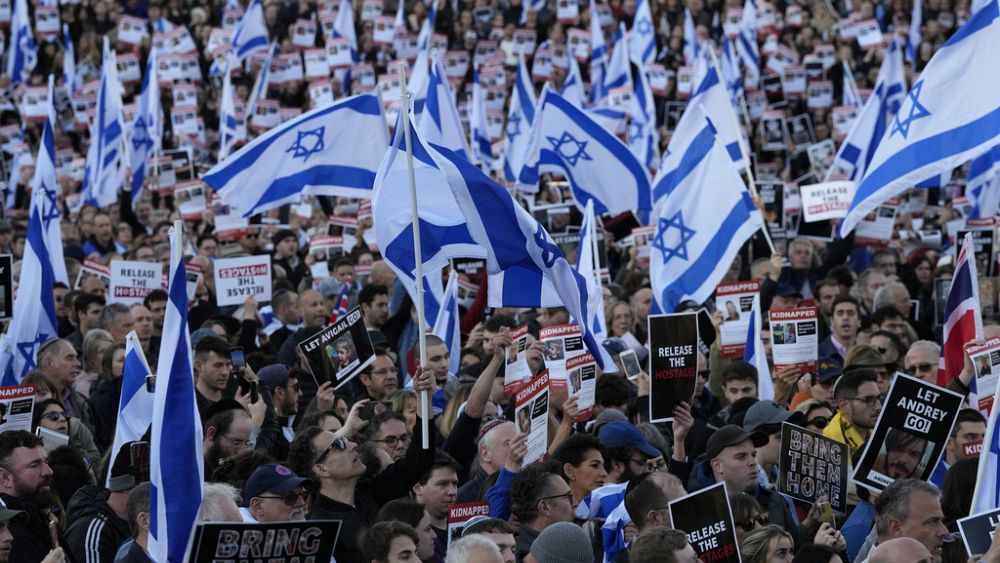- cross-posted to:
- world@lemmy.world
- cross-posted to:
- world@lemmy.world
The new research, released by the UK-based Institute for Strategic Dialogue (ISD) on Tuesday, found that in the three days following the attack, the absolute number of antisemitic comments on conflict-related YouTube videos increased by 4963% when compared to the previous three days.
Part of this surge can be explained by an increase in the number of videos focusing on Israel and Gaza published on the platform. But the proportion of antisemitic comments had still ballooned by a daily average of 247% after fighting broke out, according to the ISD.
EDIT: limited the excerpt to two paragraphs (rule 2)
Sounds like it’s anti-Israel comments more than anti-Semitic comments? Maybe I just don’t understand something about the situation, but it feels like it’s impossible to criticize Israel without being labeled anti-Semitic. The country is not a religion.
That’s entirely what it is, Zionists just love crying antisemitism.
I personally have experienced more anti-Israli comments. However, anti-Semitism is also more common nowadays. That’s just my experience tho
Comments contained dehumanising language, including comparisons between Israelis and Nazis, conspiracy theories - ranging from the idea that Jewish people control the media, as well as political and financial institutions, to the claim that the Hamas attack was a ‘false flag’ planted by Israel - and direct threats to Jewish figures and officials.
Apparently criticism and verbal/written attack against the country Israel count as antisemitic. This is very dangerous as it lump the state with the religion together, making the state(the government, the politician) virtually untouchable. In a progressive way, the state should NOT represent the religion, and both need to be separated. Netanyahu able to do what he do today because the world allow him to hide behind the word “antisemitic”, the world enable a monster to walk freely because they fear the backlash.
I want to be able to criticise my government for their fuck up without them raising the islamophobe shield to deflect any wrong doing(it has happened and it will happen again). The world need to grow the fuck up before we return to the dark age. Trust me, you don’t want the world to enable Saudi to hide behind the word “Islamophobe” .
Are we allowed to be anti Netanyahu? Like how he funded Hamas? Is it okay if we talk about this bill he’s passing to allow him to shoot Israeli protesters? Am I being antisemitic right now?
Point being, this study has a clear bias in its choice about how to categorize comments.
This is the best summary I could come up with:
New research by the Institute for Strategic Dialogue found that in the days after Hamas’ attack antisemitic comments on conflict-related YouTube videos increased by 4963%.
Antisemitic remarks have soared online since Hamas’ surprise attack on Israel on 7 October, with YouTube totalling 15,720 hateful comments against Jewish people in the following week, according to a recent report.
Part of this surge can be explained by an increase in the number of videos focusing on Israel and Gaza published on the platform.
Comments contained dehumanising language, including comparisons between Israelis and Nazis, conspiracy theories - ranging from the idea that Jewish people control the media, as well as political and financial institutions, to the claim that the Hamas attack was a ‘false flag’ planted by Israel - and direct threats to Jewish figures and officials.
The 15,720 anti-semitic comments it found on YouTube videos represented a nearly 51-fold increase in the absolute volume of such remarks.
The British think tank also analysed fringe and alternative social media platforms like 4chan, Gab, and Telegram, finding that antisemitism has significantly increased there too, with 4chan reporting the highest volume of such remarks.
The original article contains 535 words, the summary contains 189 words. Saved 65%. I’m a bot and I’m open source!






